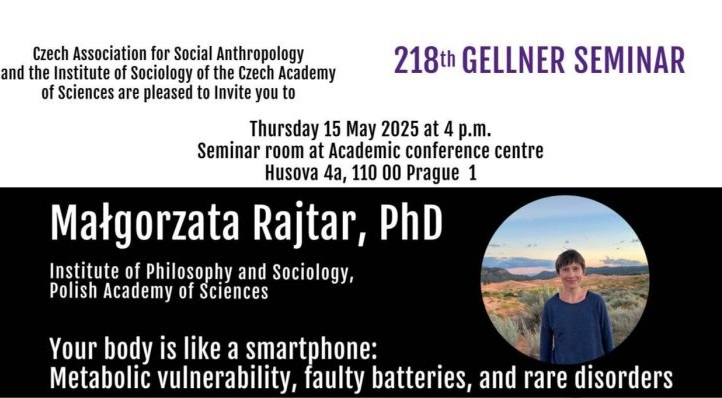Drawing from ethnographic research on rare inherited metabolic disorders (IMDs) in Finland and Poland and document analysis, in this talk I attend to notions of the body and metabolism in informational materials for patients and their caregivers.

Focusing on recent presentations, I examine how metaphor is used to understand the body and metabolism in people living with LC-FAODs (long-chain fatty acid oxidation disorders). This body is likened to a smartphone equipped with a “faulty battery” (Ultragenyx 2022). Following Landecker’s (2013) distinction between an industrial and post-industrial metabolism, I juxtapose previous informational materials that presented food as an energy source with more recent presentations in which food is depicted as a signal in the larger context of communication and regulation. I argue that this shift from understanding metabolism as a factory to the idea of metabolism as a regulatory zone is indicative of broader changes in the field of IMDs and rare diseases. The development of technologies such as newborn screening and better management of rare diseases has influenced patient mortality and morbidity. Furthermore, the growing importance of information systems and global companies within biomedicine has engendered new vocabularies that are no longer rooted in biology. Thus, this understanding of the body and metabolism as a smartphone and its battery resonates with children and adolescents. While more user friendly, the smartphone metaphor obscures the importance of infrastructures, materialities, and interrelatedness, which are crucial for the wellbeing of the LC-FAOD body with its faulty battery.
Bio
Małgorzata Rajtar is an anthropologist and sociologist. She is an associate professor and the Head of the Rare Disease Social Research Center at the Institute of Philosophy and Sociology of the Polish Academy of Sciences. Using ethnography she examines boundary objects, such as blood, minority religious groups, rare diseases, “small” data, feeding medical technologies, and ethical concerns regarding autonomy, care, and vulnerability. Her research sites have included Finland, Germany, and Poland. She published in “Anthropology & Medicine,” “Bioethics,” “Medical Anthropology,” and “Social Science and Medicine” among others.
Online účast: www.casaonline.cz/218-gellnerovsky-seminar-malgorzata-rajtar/